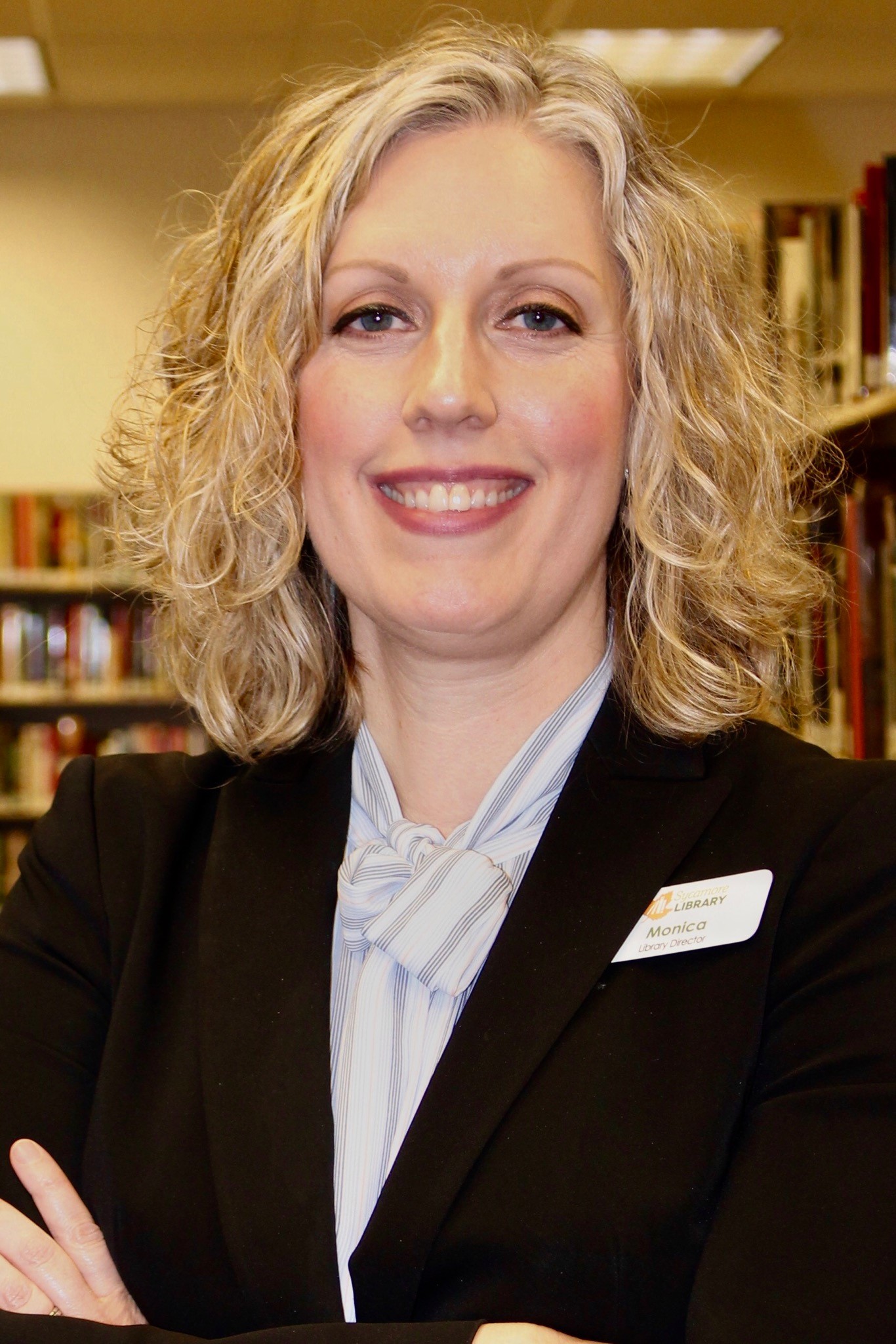
Monica Dombrowski
Library Director, Sycamore (IL) Public Library
PLA Member for 4 years
How did you first become involved with PLA?
I first became involved with PLA after meeting Barb Macikas and Scott Allen at the 2015 ALA Conference. My colleague and I reached out to them to see if PLA would be interested in absorbing our online resource, Gail’s Toolkit, into DigitalLearn.org. After talking to them, we realized our resource and theirs was a good match, so we started working together to make it happen. As a result of this process, I was approached to be the Chair of their new committee focusing on Digital Literacy issues and resources for public libraries, so I signed on and have been involved with PLA ever since.
How has PLA helped you in your career path?
I became a first-time Library Director last fall and I am convinced that my committee work helped me land my job. Networking with and speaking in front of new people, explaining projects and resources in terms of end-user value, and strategic planning to achieve outcomes are all skills I fine-tuned through my involvement with PLA. In addition, the conferences and professional development resources help me continue to evolve as a leader and discover new tools that can be applied to our programs and services to create a better experience for our patrons.
In your opinion, what is the most important work that PLA does?
Building a strong library community through professional development opportunities for members! Webinars, pre-conferences, conferences, networking events, websites, online resources… the list goes on. I’m excited that PLA is looking across all their tools and resources to see how they can raise awareness of their offerings and provide easy access for members. The other thing I think PLA does well is leveraging the talents of their members to create a community that is trying to address issues happening in public libraries. We get a chance to build our networks, learn from each other, and solve problems together, all of which give us transferable skills to take back and apply in our libraries.
How has PLA changed you?
Because of the people I’ve met, experiences I’ve had, and conversations I’ve been able to be part of, my view of libraries has grown exponentially. It’s easy to create something that works where YOU are, but will it work everywhere else? For example, what do you do if your library is run by two part-time staff members with limited computer skills and your community is asking for tech classes? Small and rural libraries are on my mind a lot because of being involved with PLA, along with scalable resources that can be easily adapted for use in any size library.
What do you hope PLA will achieve in the next 75 years?
I’d like to see PLA create strong partnerships with some of the big tech players like Microsoft, Google, and Apple to bring more hardware and software to libraries. More than anything, though, I’d like to see them work with vendors to negotiate appropriate pricing models for subscription databases and services. Many libraries are priced out of resources because they are charged by population served, when, in fact, maybe only three licenses would ever be used. Helping these vendors see the customers they’re leaving on the table could influence pricing and help libraries provide more equitable access to digital resources.
